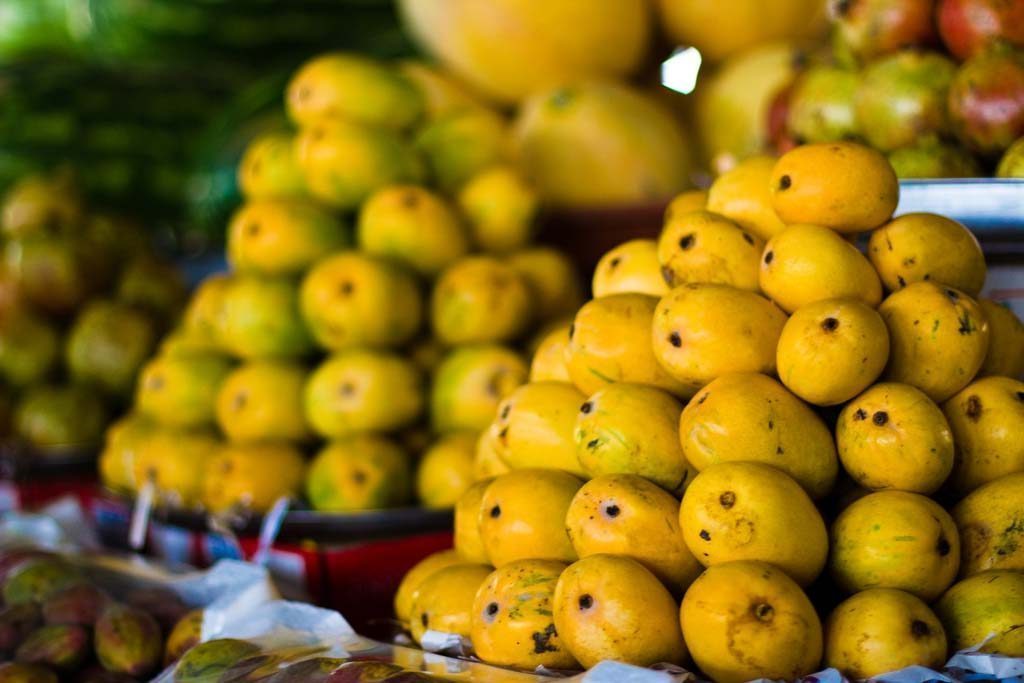
A new report says bountiful harvests around the world are pushing down global food prices – good news for consumers in countries such as Qatar, which relies heavily on imports to feed its growing population.
Qatar National Bank said this week that local food prices declined 0.6 percent in June, compared to the same month last year. That’s a turnaround from three years ago, when food prices were on the rise, peaking at a year-over-year increase of 5.9 percent in June 2013, according to QNB.
In theory, declining prices for edibles should help to keep a lid on the cost of living in Qatar, partially offsetting the rapid rise in the cost of rental accommodations.
The QNB report says:
Since the country has virtually no domestic food production, lower international food prices are likely to continue to push Qatar’s food prices lower for the foreseeable future, albeit with a lag. This means that Qatar’s inflation should remain moderate at around 3.5% at least until the end of 2015.
However, two local businesspeople who spoke to Doha News said shoppers likely won’t be seeing any savings at grocery stores just yet.
Local market
A local manager at a chain of grocery stores in Qatar, who asked not to be named, said he hasn’t seen any change in food prices in recent months and has not received any signals from suppliers that a reduction is on the horizon.
“I don’t see any decline here,” he said, suggesting that wholesalers may be seeing a change, but failing to pass the savings on to retailers.
However, one local food importer said prices on their end have also remain unchanged.
Zameel Rahiman, the air shipment manager for Al Safa Distribution – which brings more than 50 tons of strawberries, blueberries, blackberries, cherries, tomatoes and other fresh produce into Qatar weekly – told Doha News that rates are steady.
“Prices are the same. No big fluctuations,” he said.
Rahiman said sales to grocery chains are up as promotional campaigns encourage consumers to eat more fresh fruits, particularly berries. But he said importing food into Qatar costs roughly 20 to 25 percent more than other cities in the region, such as Dubai, where he previously worked, as well as Kuwait City.
One reason, according to Rahiman, is that airlines charge more to fly freight into Qatar than other Gulf destinations. Additionally, he said the new Hamad International Airport is “very busy,” leading to delays in clearing cargo that render some shipments of fresh produce inedible.
“I have to add these losses onto my prices,” Rahiman said.
He added that some suppliers are choosing to fly their shipments into Dubai and then import it to Qatar by truck in an attempt to reach local markets faster.
Rahiman’s concerns echo those of other suppliers, who recently argued that Qatar uses an outdated system of processing and distributing food. One suggestion to help lower prices is for the country to construct large warehouses so importers can purchase large volumes of food directly from countries of origin.
From farm to plate
With its limited fresh water supply and minimal arable land, Qatar currently imports more than 90 percent of its food. Earlier this year, the Gulf Times reported that some 3.98 million tons of food was imported in 2013 – more than double the amount in 2012.
According to a report published by local Northwestern University journalism students, Pakistan is Qatar’s largest supplier of rice and wheat, while the bulk of this country’s (frozen) poultry comes from Brazil.
Most of Qatar’s vegetables and dairy products, meanwhile, are imported from Saudi Arabia. This dependency raised fears among some that this year’s diplomatic spat between Riyadh and Doha could escalate and cause disruptions to Qatar’s food imports.
The government is currently working to improve this country’s food security by purchasing farmland abroad as well as increasing domestic production.
As part of this effort, the Qatar National Food Security Programme aims to have local farms supplying 40 percent of the country’s food by 2024 through more efficient growing techniques and better crop selection.
Thoughts?







